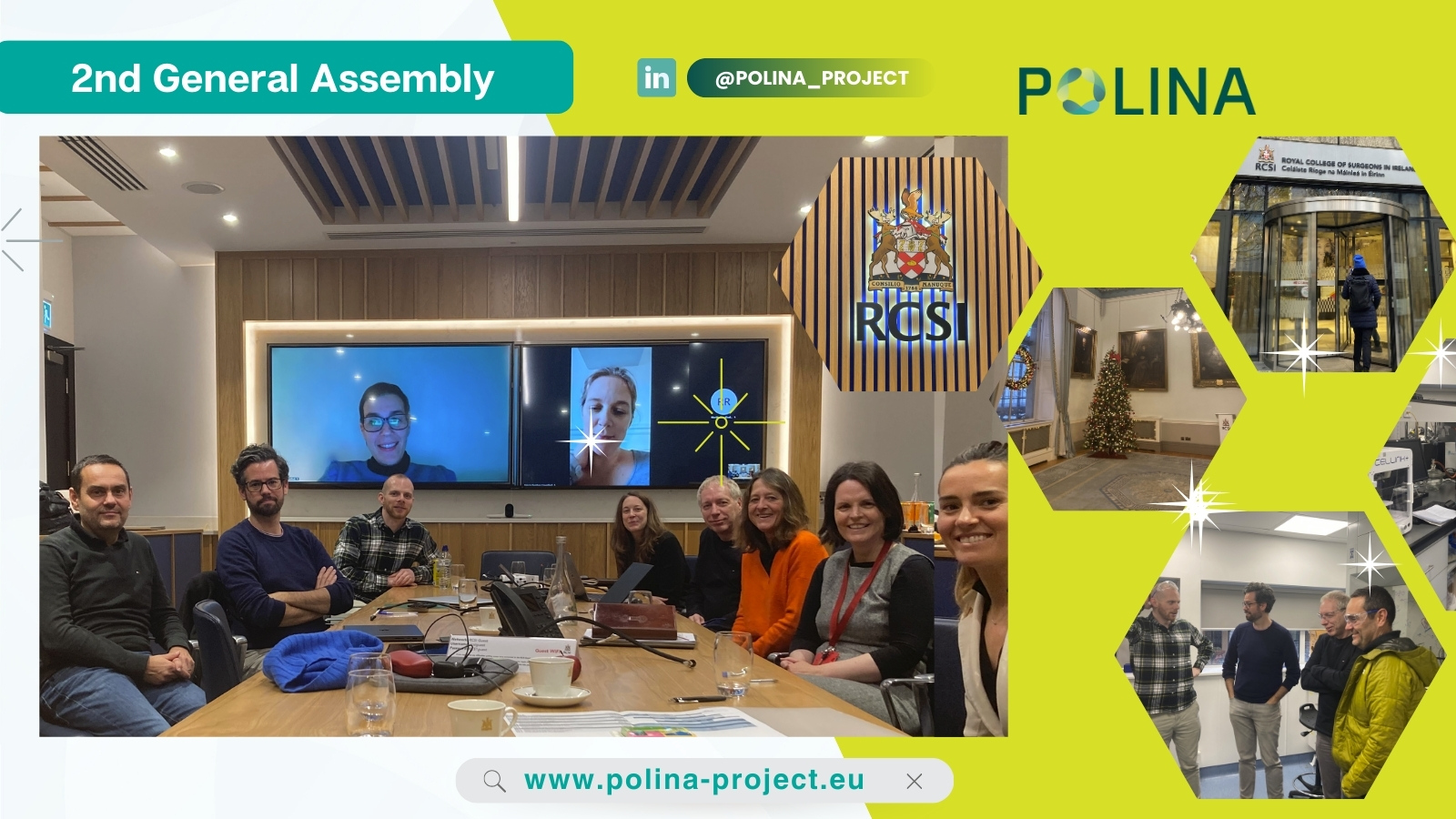POLINA partners brought together for the 2nd General Assembly (GA) meeting, held on December 4th in Dublin, Ireland. The meeting was kindly organised and hosted by POLINA partners from the Royal College of Surgeons in Ireland (RCSI). All the partners gathered for comprehensive discussions on the advancements and significant innovations in the field of 2/3D printing.
The GA kicked off with a warm welcome and an overview of the objectives and challenges by Prof. Andreas Heise from RCSI. Dr. Robert Murphy followed, updating the consortium on RCSI’s progress, the challenges they’ve faced, and the upcoming steps for the project. Following the Chemistry and Materials work package, Dr. Fernando Vidal, representing POLYMAT and UPV-EHU provided an update on their advancements on the optimisation of photobase-initiated polymerisation, along with the opportunities and obstacles encountered and the path forward.
Afterwards, Dr. Olivier Soppera from CNRS then took the stage to share their progress on lithographic structuring, explaining the current implementations of photopolymerisation processes. Together with Carlo Gonzato, the CNRS team will prepare 2D and 3D micro- and nanostructures based on the resins developed in the project, using the team’s various photolithography devices and its experience in photostructuring.
Dr. Patricia Davidson from 4DCELL presented (online) their new developments in device integration with lots of advancements and positive points. Prof. Eva Blasco from Heidelberg University followed sharing their new tools that can be also implemented for measurements and comparisons.
The second half of the meeting featured presentations from accelopment Schweiz AG. Ms. Miriam Frances highlighted the project’s outreach achievements and outlined plans for upcoming science communication activities. Ms. Jacqueline Strehler then discussed project coordination and management, including a dashboard of planned actions, upcoming deliverables, and next steps.
In addition to the formal presentations for each work package, this assembly featured an interactive exercise and concluded with an open discussion led by Prof. Andreas Heise, encouraging all partners to share their thoughts and suggestions for the project’s improvement. Finally, RCSI organised a lab tour for the consortium.
All project members were pleased with the productive outcomes of the meeting and the progress made during the first year of POLINA. The project is on track, and partners are committed to delivering the promised technology. Follow us on LinkedIn to stay up to date with the POLINA progress.

